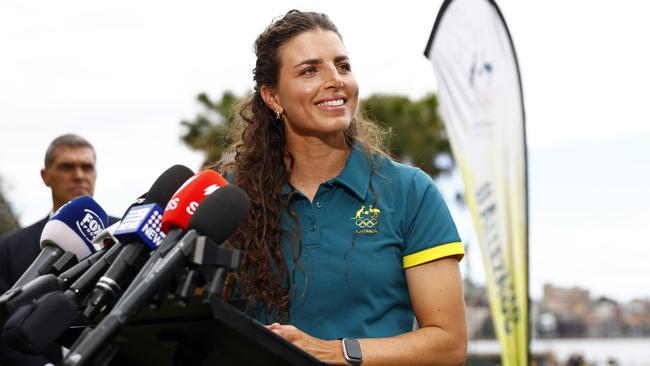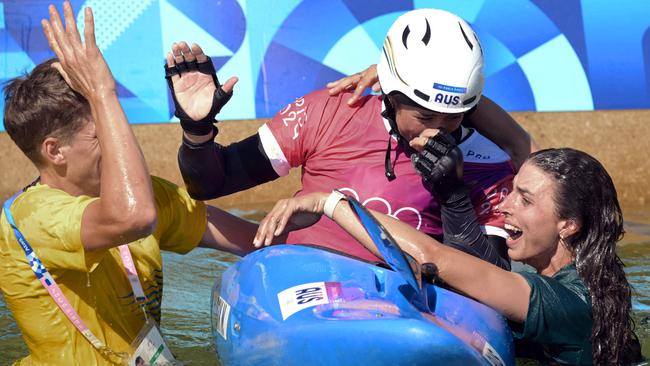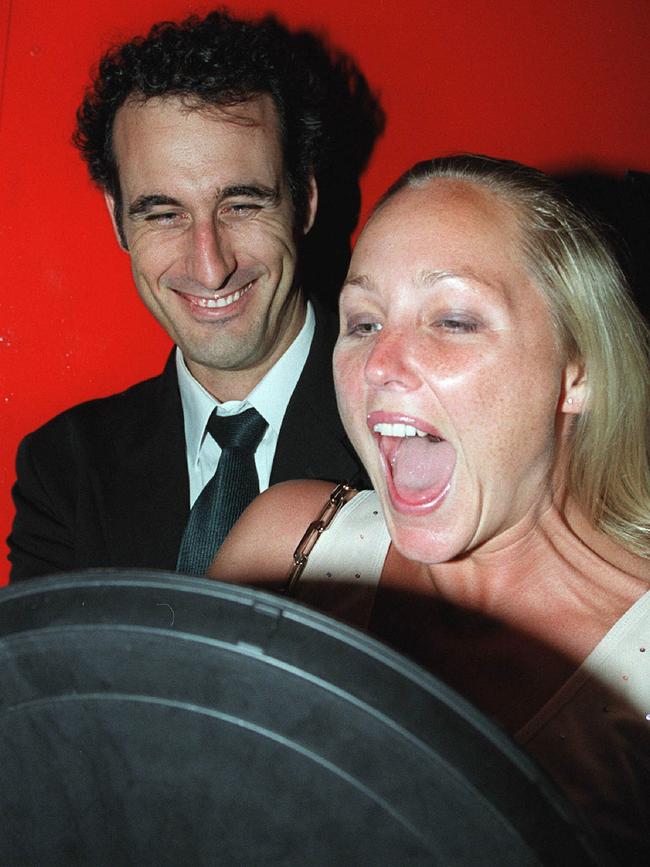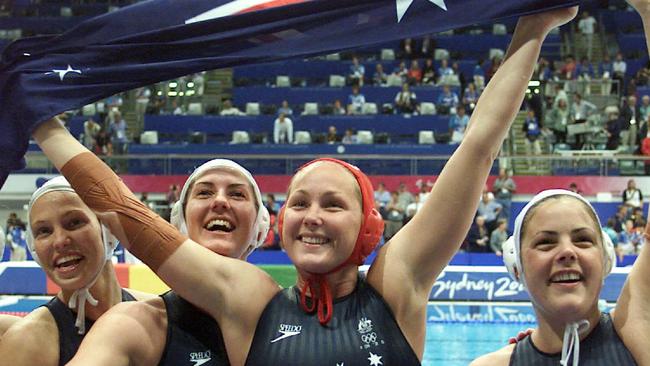How Richard Fox’s hounding built an Australian whitewater legend
The untold story of how Richard Fox’s persistence to overturn a Sydney 2000 Olympics decision laid the groundwork for daughters, Jess and Noemie, to get gold in Paris.

I was working in London in 1997 when I got a call from a gentleman I didn’t know, called Richard Fox, inviting me to lunch.
A British whitewater slalom canoeist who had come fourth in the Barcelona Olympics in 1992, Fox wanted advice on how to overturn a decision of organisers of the Sydney Olympics that canoe slalom would not be in the program for the 2000 Games.
His French wife, Myriam, had won a bronze medal in the 1996 Olympics in Atlanta, and he wanted to give her the chance to compete again in Sydney. Fox was canvassing as many people as he could to change the decision.
I was in the unusual position as an Australian journalist based in London who had a working knowledge of the organisation of the Sydney Olympics.
I had covered the build-up to the Sydney Olympics from the Sydney bid in 1993, and covered the establishment of the Sydney organising committee under former Brambles chief executive Gary Pemberton, and covered the Atlanta Games in 1996.
I was temporarily based in London where my husband was on a business assignment, with instructions from my editor to use the opportunity to cover the Swiss-based Olympic movement.

It had been decided by Sydney organisers that whitewater canoeing was too expensive to stage in 2000, with the construction of the proposed course in Penrith costing around $12m.
Fox spent the two hours over lunch grilling me on anything which could help his case, including the politics of NSW, the personalities of those involved in the Olympics and what possible arguments would work to help overturn the decision.
Fox took down points in his notebook. He had a line-by-line breakout of how to reduce the cost of building the venue, including using his contacts to help fund it with some outside sponsorship.
Over time I would bump into him and his fellow whitewater associates at IOC meetings, often in Switzerland, but once by the sea in Monaco, lobbying representatives from Sydney.
I would smile as I watched them, initially standing on the sidelines and then, having spotted a member of the Sydney 2000 delegation, swiftly buttonhole them to lobby their case.
I kept in touch with him by phone, as he set out more of his strategy to reduce the cost of the venue and raise more funds, amazed to learn later that he was successful.
He and his wife and their young daughters, Jessica and Noemie, moved to Sydney in 1998 to oversee the development of the course at Penrith, and the rest is history.

Watching the success of the two gold medal-winning Fox daughters in Paris from my loungeroom in Australia, I wanted to retell the story of how critical his work then was to his family’s success.
Behind every Olympian is an amazing story of sheer determination and inspiration.
Had it not been for father Richard’s steely determination to have the event at the Sydney Games, the gold medal-winning events of the past week in Paris would not have happened.
Meanwhile, back in Australia in the lead-up to the Sydney Games, a group of women water polo players also worked to change history.
Women’s water polo was not on the agenda for the Sydney Games either.
The Australian women’s team was one of the top in the world, including goalie Liz Weekes.
The women’s team decided that they needed to make a stand at a press conference to be held in Sydney with the IOC’s person in charge of overseeing the 2000 Games, Dr Jacques Rogge.
The protests of the Australian women’s team were successful and women’s water polo was also made part of the 2000 Games.
Weekes went on to play a pivotal role as goalie in the Olympics. The Australian team defeated the US 4-3 in the last minutes of the final, allowing the team to win Australia’s first ever Olympic gold medal in the women’s water polo.


In the process Weekes met her future husband, businessman Rob Scott, who was a member of the eight in the Australian team at Barcelona Olympics in 1992, and had won silver in the pair in the Atlanta Olympics.
His career progressed, seeing him take over as chief executive of Wesfarmers in 2017.
Scott, who managed to juggle his passion of world-class rowing with his business career, has maintained his passion for rowing, taking on the role of president of Rowing Australia for a decade, before stepping down in June.
Weekes is now a member of the AOC executive.
Both couples – the Foxes and the Scotts – have been in Paris, having already contributed a lot to their respective sports over decades, both as athletes themselves and supporters.
My personal interest in the Olympics stemmed from having a husband passionate about athletics, who was a former Australian national hurdles champion.
There are many amazing lessons from any Olympics which never make the front pages.
But when it comes to the Olympics, the stories of success are those of dedication, commitment and determination stretching back decades, sometimes from generation to generation.

As we watch the final days of the Paris Olympics and vicariously bask in the success of the Australian team – the athletes who succeeded and those who didn’t quite make it – the quote which most resonates is the one by former US president Theodore Roosevelt in 1910.
His words may do with some modern-day updating to include women but they are still apt.
“It is not the critic who counts; not the man who points out how the strong man stumbles, or where the doer of deeds could have done them better,” he said. “The credit belongs to the man who is actually in the arena, whose face is marred by dust and sweat and blood; who strives valiantly; who errs, who comes short again and again, because there is no effort without error and shortcoming; but who does actually strive to do the deeds; who knows great enthusiasms, the great devotions; who spends himself in a worthy cause; who at the best knows in the end the triumph of high achievement, and who at the worst, if he fails, at least fails while daring greatly, so that his place shall never be with those cold and timid souls who neither know victory nor defeat.”
Glenda Korporaal is the author of The Bid: How Australia Won the 2000 Games with Rod McGeoch 1994; and An Olympic Story with Kevan Gosper 2000. She covered the Olympics in 1996 (Atlanta), 1998 (Nagano), 2000 (Sydney), 2004 (Athens), 2008 (Beijing) and 2012 (London).




To join the conversation, please log in. Don't have an account? Register
Join the conversation, you are commenting as Logout